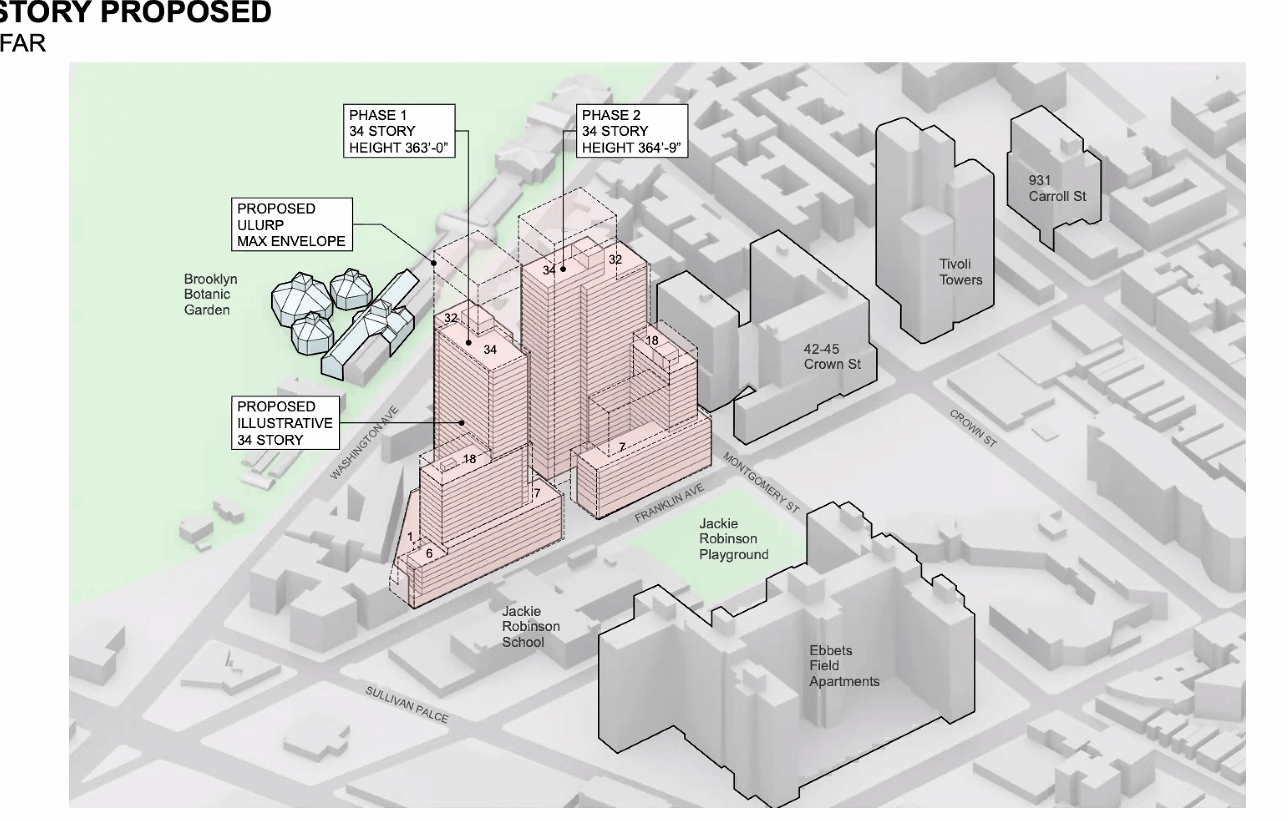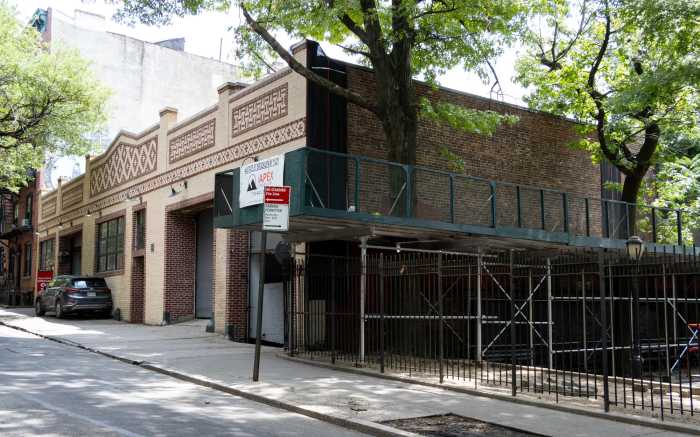The City Planning Commission will vote to disapprove the controversial Crown Heights apartment tower that threatens to block the Brooklyn Botanic Garden’s sunlight, the commission’s chair said on August 16.
During a public meeting of the commission, Lago reiterated concerns about the size of the development and the risk it poses to the horticultural museum — as the garden’s leadership claims the building would block out much-needed sunlight and destroy some of the local plant life.
“In light of these land use and environmental concerns, as well as the commission’s concerns and the public testimony that we heard, the department intends to prepare for the commission a report in which the commission will disapprove the application,” Lago said.
The developer behind the project, Continuum Company, proposed the 34 story multi-tower development at 960 Franklin Avenue near Montgomery Street, one block from the Botanic Gardens’ grow houses, and they’ve been met with fierce resistance ever since.
The developer attempted to submit a shrunk-down 17-story alternative to the commission along with its Environmental Impact Statement material, but commissioners refused to evaluate it, saying they did not have enough time.
“The applicant is now seeking to have the commission modify this complicated proposal, which shouldn’t have been pursued in the first place,” Lago said.
Lago blasted the proposal as “grossly out of scale” and “inappropriate for this location.”
“Not only inappropriate for this location, but also casts extensive shadows over the Brooklyn Botanic Gardens’ greenhouses and conservatories, which are unique, sunlight sensitive receptors,” she said.

The City Planning Commission’s review is one of the last steps the project faces as it moves through the city’s Uniform Land Use Review Process. Unlike community boards and the borough president, both of which have offered advisory rejections of the proposal, the commission’s vote is not advisory, and effectively signals the end of the line for the developers application. A downvote from the commission is rare — it is often described as a ‘rubber stamp‘ commission that is on the side of developers.
Mayor Bill de Blasio, who has the power to veto a land-use change, has already voiced his disapproval of the plan.
A recent report by the Municipal Art Society detailed the extent to which the garden would lose sunlight were the 34-story tower to be built, with the garden losing up to 3 and a half hours of sunlight in June, and 1 to 2 hours of sunlight in March. The building could also cloak nearby Jackie Robinson Playground and the Medgar Evers College campus in shade, the report found.
Continuum has opted to go on the offensive against the garden and its backers, claiming in its Environmental Impact Statement that the garden was not an integral part of the Crown Heights community because it is fenced off and requires an admission fee to enter.
In a public relations campaign against the garden, the developer called out its supporters as ‘limousine liberals’ unconcerned with the housing shortage gripping New York.
“NYC is facing a housing shortage and we can’t let out-of-touch limousine liberal elitists dictate where working families live,” read a sponsored post by the group in a newsletter from City & State Magazine.
The proposed 34 story tower would contain 1,578 rental units, 789 of which the developer claims would be affordable. If it is not granted the land use change, Continuum has said they plan to build an as-of-right development with over 500 market-rate condominiums.
During a July 29 public hearing for the project held at the commission, which saw only one person testify in support of the project — a representative from a union that supports the project who read from a prepared script — over three hours of testimony, Commissioner Anna Hayes Levine called the developers out for portraying the garden as unintegrated into the neighborhood.
“I believe the testimony we’re hearing today demonstrates that statement is absolutely wrong,” Levine said.
























